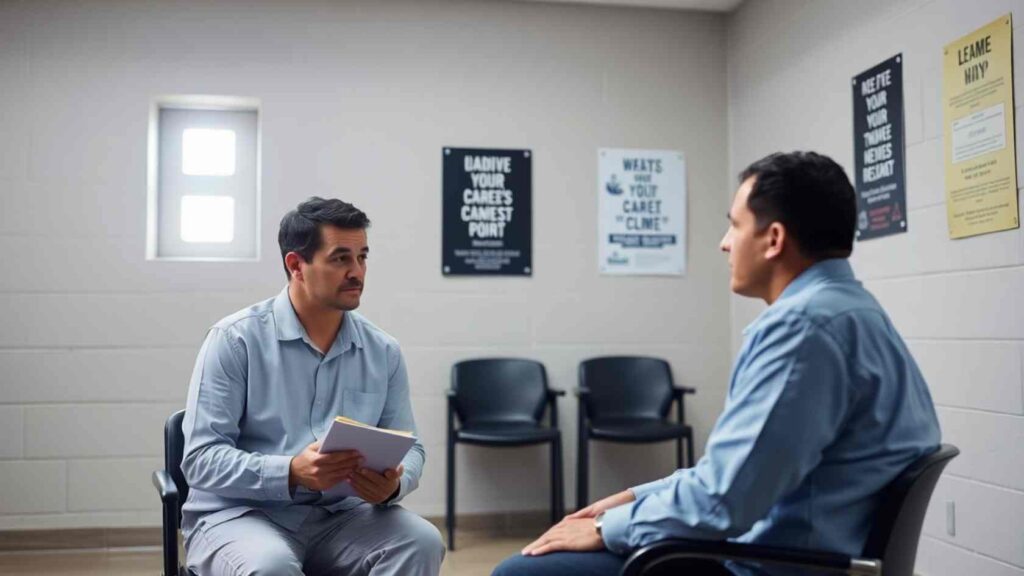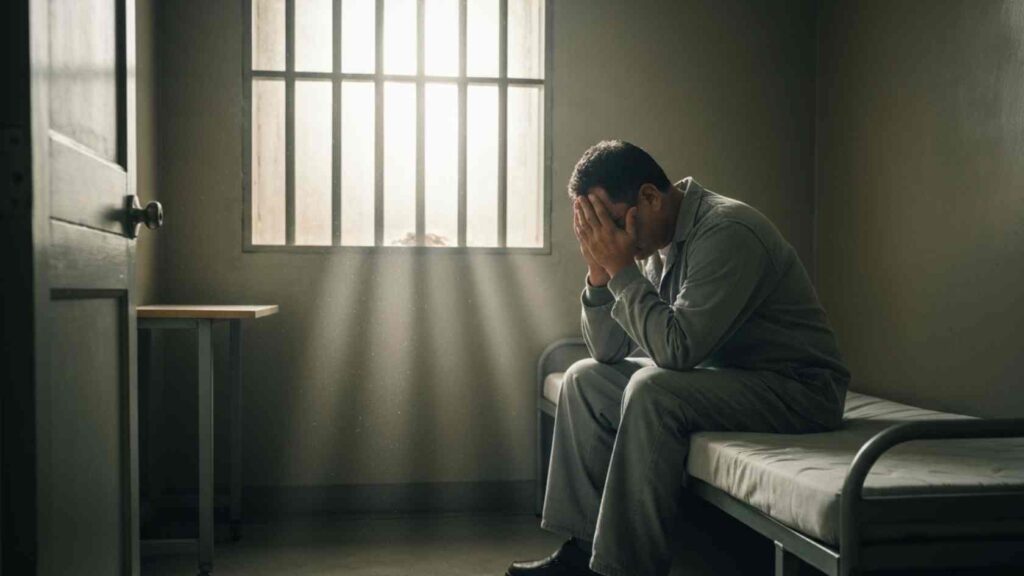Could a Career in Correctional Counseling be Right for You?

Correctional counseling is a specialized form of psychotherapy performed within the criminal justice system primarily within prisons, jails and detention centers. Contrary to traditional mental health roles which focus on general outpatient therapy or outpatient counseling sessions for an entire population at once – correctional counselors work directly with inmates on behavioral issues related to trauma, substance abuse or mental illness which have contributed to criminality.
Correctional counsellors work not only to promote emotional well-being but also to reduce recidivism and ensure successful integration into society for inmates. Individualised treatment plans, group therapy sessions, collaboration between parole officers, psychologists, and social workers, and creating an ideal rehabilitative environment are all part of providing this important service.
How It Differs from Traditional Counselling Roles
Although correctional and standard counsellors share common skills like empathy, active listening and psychological assessment, their environments and client needs vary substantially.
Setting is one key distinction; standard counselling services may occur anywhere from schools and clinics to private practices and prisons, while correctional counselling primarily operates inside prisons, jails and detention centres. Also noteworthy is clientele; while standard counsellors seek voluntary helpers for counselling purposes only when another party asks for help, those needing correctional counsellors often receive their services against their will, making conversational techniques ineffective in meeting most clients.

Focus areas typically include anger management, trauma and criminal thinking counseling services – which differ drastically from anxiety and depression counseling; special skills and knowledge may be required of correctal counselors as security considerations must also be factored into counseling sessions with these clients who could have committed acts of violence themselves or have severe anger issues that require correctal counselors to navigate institutional rules and safety protocols for successful counseling sessions.
Though you might assume the results would be similar, therapeutic goals vary widely between standard and correctional counselling services. Standard goals focus more on personal growth and symptom relief, while correctional counsellors emphasize rehabilitation, reintegration and behavioural change as their top goals.
Roles Involving Profound Challenges (ROPR)
Counsellors working in correctional settings face unique emotional and logistical challenges when providing counselling services within correctional facilities, including:
Counsellors May Find It Difficult to Provide Individualised Care Due to Limited Staff and High Inmate Population – Counsellors can become overwhelmed in meeting individualized care for every inmate in an increasingly diverse population, leaving counsellors scrambling for time, staff and funds for adequate counselling care services.
Burnout and Emotional Fatigue: Exposure to trauma, aggression and institutional constraints can have serious repercussions for mental health.
Involuntary Clients: Counselling inmates may be forced to attend, which can create resistance and make therapeutic progress more challenging than usual.
Institutional Barriers: Security needs, limited resources and administrative restrictions can impede therapeutic progress.
Ethical Dilemmas: Addressing confidential, dual relationships, and safety concerns requires constant vigilance and resilience.
Who Might Be Suited for Correctional Counseling

Anyone with an interest in psychology could be a good fit for correctional counseling, but some key traits may be more necessary in this industry than in other standard counseling roles.
- Emotional resilience: The ability to manage stress and maintain composure in unpredictable environments
- Strong boundaries: Comfort with enforcing limits and maintaining professional distance for the benefit of themselves and their client.
- Empathy without judgment: A commitment to seeing clients as people, not just offenders.
- Adaptability: Willingness to adjust therapeutic approaches based on institutional constraints.
- Cultural competence: Sensitivity to diverse backgrounds and experiences, especially in underserved populations.
New therapists who have recently graduated from forensic mental health counseling graduate programs online may be the perfect match for a career in correctional counseling. These programs often include coursework in criminal justice, trauma-informed care, and behavioural interventions, making graduates well-equipped to navigate the complexities of correctional environments.
Career Outlook and Pathways
Correctional counseling is a growing field, especially as the U.S shifts toward rehabilitation-focused justice models. According to the Bureau of Labor Statistics, demand for substance abuse, behavioral disorders, and mental health counselors is projected to grow 19% from 2022 to 2033, much faster than the average for all occupations.
To enter the field, most positions require a master’s degree in counseling, psychology, or social work, state licensure, specialized training, and experience in criminal justice or institutional settings. Some roles may also require background checks, security clearance, or additional certification in crisis intervention or trauma-informed care.
Also Read: The Benefits of Aftercare: What Happens After Treatment Ends
Final Thoughts
Correctional counseling is a powerful intersection of psychology and social justice. It offers therapists the chance to work with marginalized groups and address systemic issues while contributing to meaningful change.
While the role comes with challenges, it also provides a unique opportunity to help people rewrite their stories. For those drawn to advocacy, rehabilitation, and resilience, correctional counseling may be more than a career; it may be a calling.



